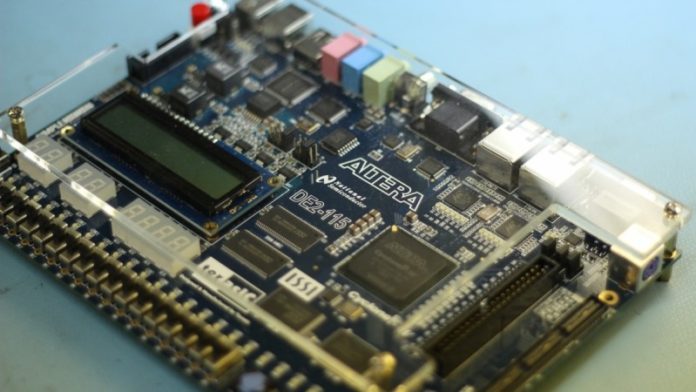
It was back in December 2012 when Doug Burger and Steve Ballmer tried to predict the future of technology.
Ballmer, the big, bald boisterous CEO of Microsoft was sitting in the lecture room on the ground level of building 99, at the home base location for the company’s Blue-Sky R&D Labs, located just outside of Seattle, Washington. Ballmer was surrounded by his top lieutenants and had his laptop opened up during this conference. Burger, a computer chip engineer had recently joined the team and was pitching some new concepts dubbed as Project Catapult.
Burger explained that in the tech world, companies are gravitating towards building an entirely new architecture to operate just a few of the large Internet services because of their complexity and completely different technology. These companies will not only have to provide the new software, but they will have to create their own hardware, as well. This will include servers, networking gear, and so on. Project Catapult had the potential to equip all of Microsoft’s servers – that consist of millions of different servers – with a new and special chip. This chip would provide the platform that allows the company to then manage to reprogram for particular tasks that are needed.
However, before Burger was able to move to the details about the chips, Ballmer had raised his head from his laptop. Ballmer stated that he was expecting updates about the R&D and not strategy briefing. Microsoft had spent the last 40 years building computer software programs such as Windows, Word, and Excel. Microsoft had just recently started finding themselves on the Internet. The company didn’t have any of the tools nor the engineers that would be required to build their own computer chips. In theory, Microsoft building computer chips would be like Chick-fil-A selling Hamburgers. It just didn’t make much sense.
Burger informed Ballmer that other large corporations such as Google and even Amazon had already started to move in this direction. He also included that hardware manufacturers would not be able to provide Microsoft with any of their needs in order to run their online services. Burger stated that if Microsoft doesn’t start making alterations, they would surely be left in the dust. However, stubborn Ballmer was not buying into this nonsense. It was at that point in which Qi Lu, the person that runs Bing, and who had been talking to Burger for nearly 2 years about the reprogrammable chips, stated that it is possible for the chip and that they have been working on its design already.
Fast forward in time and the programmable chips that had been developed by Burger and Lu, dubbed as the “Field Programmable Gate Arrays,” are finally here. The FPGA’s have already underpinned that of Bing; we can also expect to see in the upcoming weeks that these new hardware devices will drive new innovating research on algorithms, in which are based upon the neural networks, as well.
This article (Microsoft Bets Their Future on a Reprogrammable Computer Chip) is a free and open source. You have permission to republish this article under a Creative Commons license with attribution to the author and AnonHQ.com.
Supporting Anonymous’ Independent & Investigative News is important to us. Please, follow us on Twitter: Follow @AnonymousNewsHQ





do not introduce chips in people… you all already know the final purpose… i have read something about mental ill people getting microchipped… there is no excuse…
FPGAs (Field Programmable Gate Arrays) aren’t new themselfes….. it’s just the idea to use them instead of the SOCs (system on chip) as new processors…..